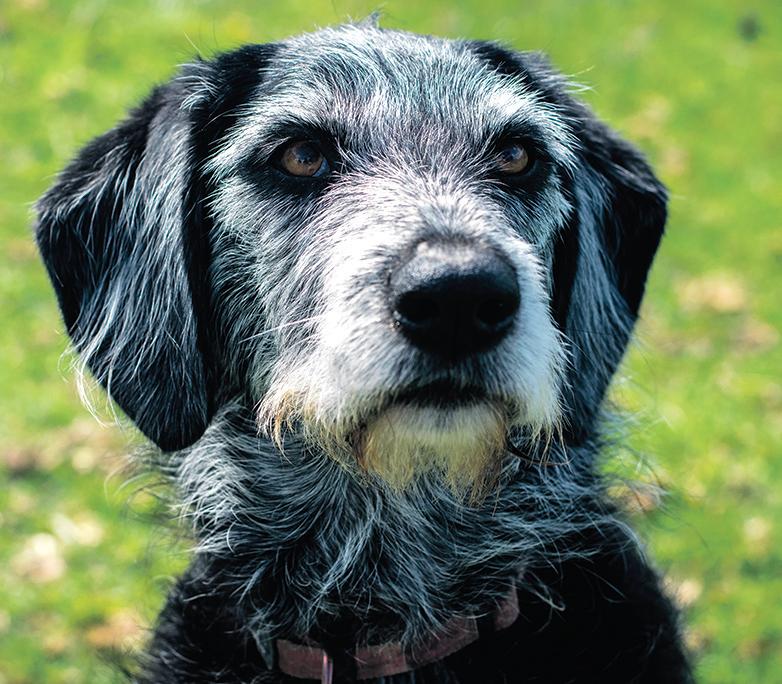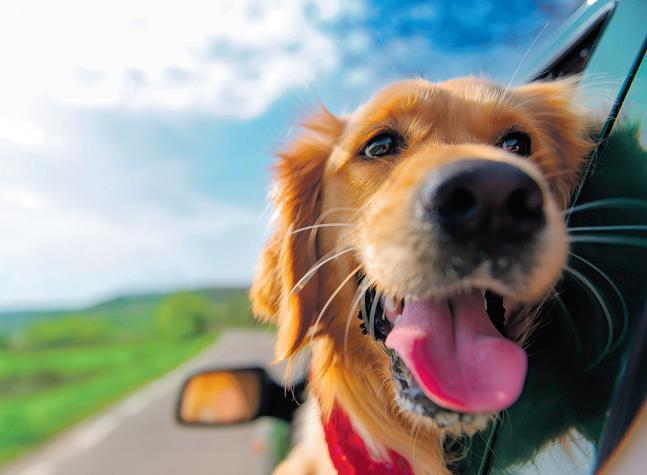
1 minute read
Golden years
AS our beloved pets grow older, they require extra care and attention to ensure they are comfortable and happy. Senior pets have unique needs that, when addressed, can significantly improve their quality of life. Ensure your senior pet receives regular veterinary checkups. Discuss any agerelated concerns, such as arthritis, dental health, or weight management. Adjust their diet to suit their changing requirements.
Make your home seniorpetfriendly by providing comfortable bedding, easy access to food and water, and eliminating potential hazards. Keep the living area warm and draughtfree.
While senior pets may have reduced energy levels, regular exercise is crucial. Tailor activities to their abilities, including short walks, gentle play sessions, or interactive toys that stimulate their minds. Puzzle toys can keep them mentally engaged and prevent cognitive decline.
Monitor your pet for signs of discomfort, such as difficulty standing, climbing stairs, or reluctance to move. Maintain social interactions and engage in activities that your senior pet enjoys. Arrange playdates with other gentle pets, and visit petfriendly parks. Maintain a consistent routine to provide stability and reduce anxiety. very sensitive and susceptible to cuts, wounds, and burns. In addition, it is the part of the body where the dog perspires, so taking care is most important.
Spend quality time with your senior pet, giving them love, attention, and reassurance. Offer gentle grooming sessions, massages, or cuddle time to strengthen the bond between you. Ensure they have a quiet, comfortable space where they can retreat for relaxation and solitude.
When walking your dog, look for a shady spot or grassy place instead. It may be safer to go for a gentle walk very early or late in the evening when the temperature has dropped. Make sure you have a bottle of water and a bowl for them to drink from.
Also, heatstroke in a dog can be fatal. Signs include: Heavy panting, lethargy, confusion or loss of coordination, drooling or foaming at the mouth, vomiting or diarrhoea, shaking or weakness and seizures.

Emergency Numbers
If you think your dog has heatstroke, act fast: Move the dog to a cool area, use a wet towel or the breeze of a fan, allow the dog to drink small amounts of cool water and pour some over the dog’s feet, ears and head. Never use ice or very cold water as this can cause shock.
THERAPY owls are bringing comfort and joy to hospice residents. The organisation ‘Falconers of the Heart’ visits hospices and palliative care institutions, using owls as therapy pets. The owls create a sense of happiness and peace for terminally ill patients in their final phase of life. The owls’ visits have had a profound impact on the resi









